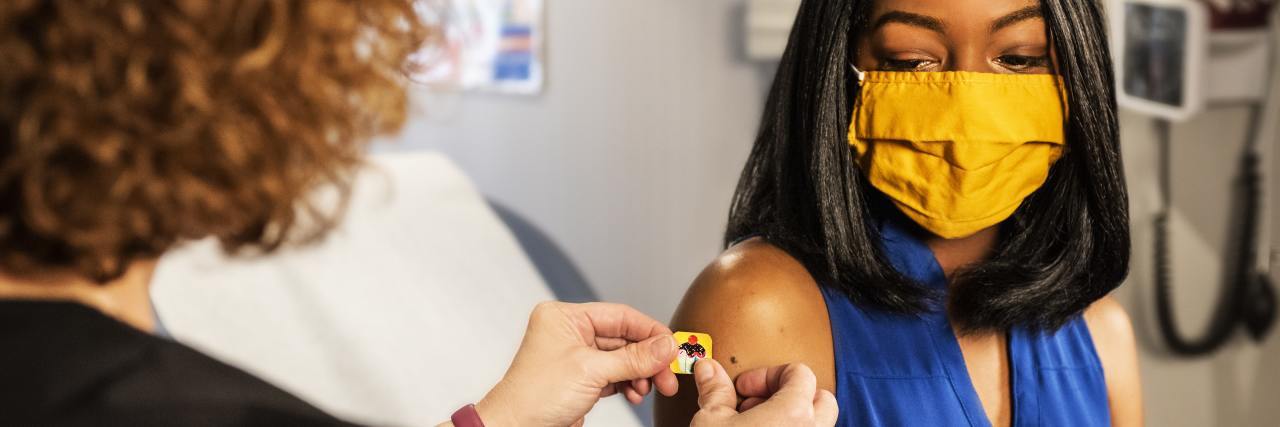I have been volunteering as a nurse at our local COVID-19 vaccination clinic. After giving a few hundred injections, something struck me. Adults are, like, super afraid of needles. No one really likes seeing something stabby entering their skin; no one really watches themselves getting vaccinated. What’s really staggering to me, though, is the number of people — again, fully grown adults — who not only say that they don’t like shots (who does?), but then, after telling me how nervous they are, and how much they’re looking forward to “getting it over with,” then feel the need to apologize for being “such a baby.”
All this got me wondering why people are so apologetic about showing their emotions. I get that we’re well past the age when screaming and crying inconsolably following routine immunizations is “the norm,” but why are we so apologetic about feeling scared and apprehensive?
The vaccine has been a fraught topic for everyone, especially if you spend any time on social media. The many scared people who bare their arms in my wooden chair are conflicted about being vaccinated. After all, who really knows what the long-term outcomes might be? And people with a healthy fear of needles might not be especially excited about having to add another shot to their yearly flu, pneumonia, shingles, what-have-you vaccine list. But these same people, while apologizing for their fear, also told me that they were getting the vaccine to protect another family member, or a student, or a patient. People also told me that they just wanted to do their little part to help the world past this difficult place. Isn’t that the very definition of bravery? Doing what you’re scared to do because it’s the right thing to do? Moving past your fear because doing so will help someone else?
I found these folks doubly brave because they were willing to admit to feeling scared. Adults are “supposed” to be stoic, right? Especially when we’re doing unpleasant adultness — getting vaccinated, going to the dentist, dealing with jerks at work. We’re “supposed” to let badness roll off and not be affected by pain, or fear, or sadness. At least, “not in public” where people can see us. But isn’t it braver, really, to share our emotions, good and bad? Just like getting the vaccine because you don’t want someone else to get sick, and having it benefit you, can sharing your emotions help someone else? Would it be helpful to you, getting your vaccine, knowing that most of the people there with you were dreading that needle stick? Would you feel connected and less, “like a baby?”
It’s always been difficult for me to share what I’m feeling, mostly because I’m worried that my feelings aren’t valid, or that someone will think I’m “being a baby.” But not sharing what’s going on with me has ultimately led me to some dark places. In my nursing role, if someone tells me they’re scared, I do what I can to assure them they’re not alone, and to make the process as quick and painless as possible. If I share my uncomfortable emotions with others, I have to trust that others will treat me with the same consideration. I also have to trust in my ordinariness. If I feel a certain way, I’m probably not the only one. I’ll never find that out, though, if I’m not brave enough to talk about what’s going on with me. It might not be running into a burning building or heaving a car off a child, but sharing those awkward parts of yourself is pretty brave, nonetheless.
Do you have questions about the COVID-19 vaccine? We asked three medical experts for their answers.
Photo by CDC on Unsplash

